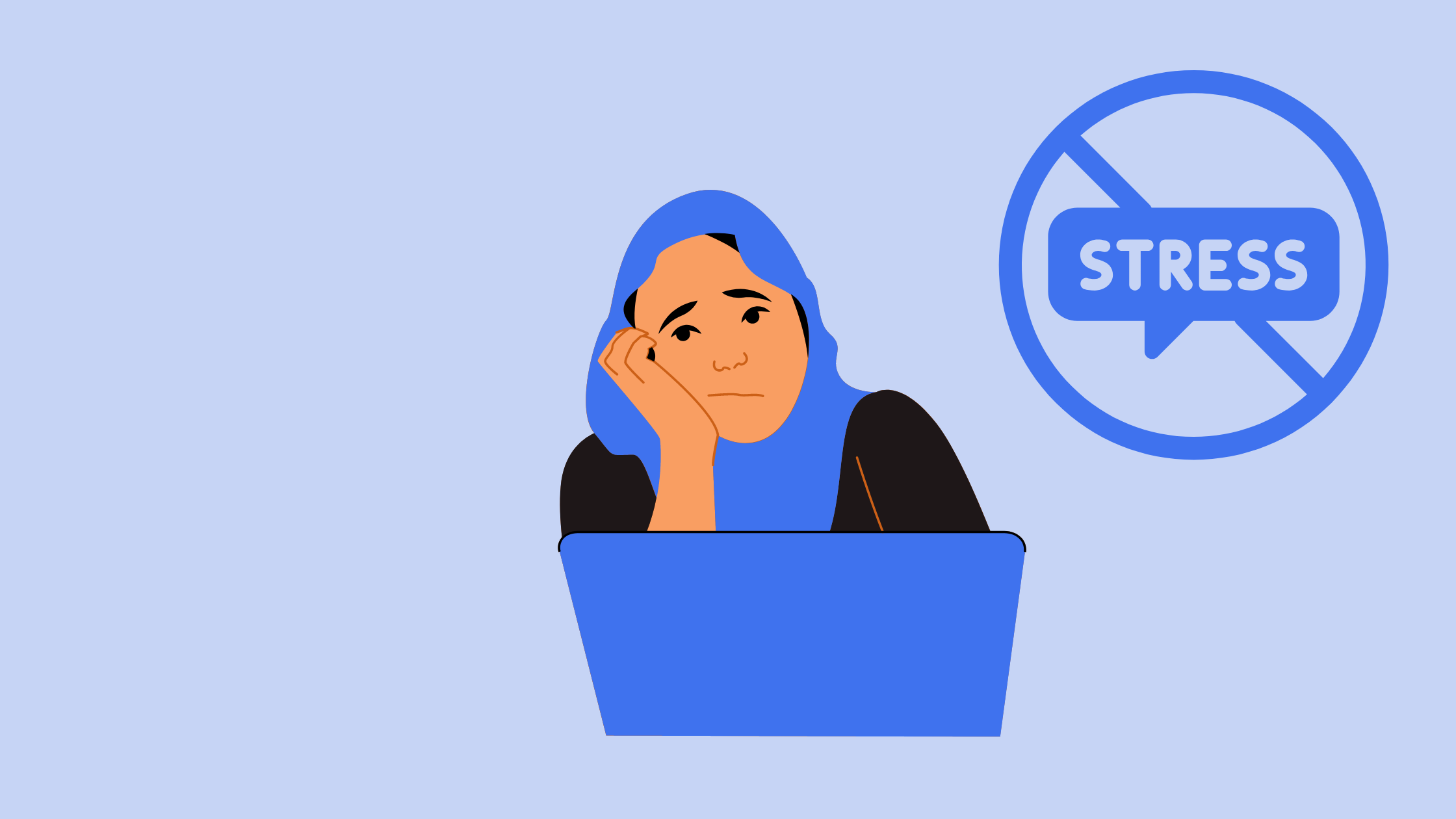11 Tips For How to Manage Stress
University as a psychology student is a time of significant transition and discovery. This can be fun and exciting, but also stressful. Whether you’re completing an online or on-campus psychology p...

University as a psychology student is a time of significant transition and discovery. This can be fun and exciting, but also stressful. Whether you’re completing an online or on-campus psychology program, devoting your time and energy to learning is a complex process. You will have to learn how to balance classes and studying with work, extracurricular activities, and social obligations. This may also be the first time you’re living away from home; dealing with homesickness, roommate conflicts, and newfound independence can present their own challenges.
Whatever university life throws at you in your psychology degree, it’s important to remember that stress is an entirely natural process. In fact, there are two types of stress:
- Positive stress, serves as motivation to keep working towards achieving goals. This type of stress is actually beneficial in creating and maintaining a sense of well-being.
- Distress, or negative stress, is what causes problems and affects your academic performance and overall health.
Fortunately for overwhelmed psychology students, distress can be managed. Although the following tips cannot magically cure or prevent all stressful situations, they will help you minimise and manage your stress in a healthy way, throughout your education and beyond.
11 tips for managing stress
Know the symptoms of stress

#1: Understand the difference between normal and harmful stress
Remember, stress is a normal response, particularly to unfamiliar situations, important events, and unpleasant surprises - so your psychology degree is a perfect trigger. If you are feeling stressed before taking a big psychology exam or turning in a final project, it doesn’t mean that you aren’t studying well or able to process course material. This is what is known as acute stress, and it is a natural reaction to a situation like a significant academic assignment. The problem arises when your stress around these events becomes so severe you cannot study or finish your assignments, or when you begin experiencing chronic, or ongoing, stress.
#2: Learn the toll that stress takes on your body
Although stress is commonly thought of as something that only occurs in your mind, acute and chronic stress affects your body in a number of ways as well. Symptoms of acute stress include recurring headaches, fatigue, insomnia or difficulty resting, and indigestion. Chronic stress often shows itself with grinding teeth, forgetfulness, overeating or excessive drinking, confusion, and other symptoms that may start to feel familiar and natural. Stress also weakens the immune system, leading to frequent colds and infections, and can have long-term effects on your cardiovascular system.
If any of these symptoms describe how you have been feeling, admit it to yourself. The first step to handling your stress is recognizing it and accepting that you need to make changes.
First aid: What to do in the moment

You can begin noticing the symptoms of stress at any time. If you feel yourself getting overwhelmed, you can use these strategies immediately to lower your stress levels.
#3: Breathe deeply
Taking several deep breaths will reoxygenate your blood and give you a few moments to step back from a stressful situation. There are many different deep breathing techniques for relieving stress. At a minimum, you can sit up straight, put a hand on your abdomen, just below the navel, and breathe in slowly through your nose until your lungs are full. Hold the breath for a moment before exhaling. Repeating this several times will help feel calmer, refreshed and more focused.
#4: Take a break
If your specific task is something you can put down for a brief period, do so. Take a short walk, do some stretches, have a glass of water or a healthy snack. Even if you’re doing a time-sensitive task for a psychology assignment, when you are stressed, you often aren’t doing your best work. Giving yourself a short break will help you relax and refocus on the task at hand.
#5: Avoid caffeine and junk food
This may seem counterintuitive if you have long hours of work ahead of you, but in addition to boosting your energy, caffeine increases your levels of cortisol, making you feel more stressed. Likewise, reaching for a quick sugary snack might ease your hunger while you’re stressing, but the subsequent sugar crash can leave you feeling irritable, tired, and sleepy. Healthy foods and beverages can give you energy while decreasing your stress levels.
Amazing activities to improve your energy and focus levels is yoga - practicing daily will revolutionise your productivity and attention to detail, retaining memories easier to excel in your exams.
The long term: Understand yourself and take control

Stress usually follows patterns and cycles. By observing yourself and learning those cycles, you gain valuable information you need to train yourself to handle stress better. After you’ve dealt with your immediate situation, use these tips to build your own stress management plan.
#6: Look for your stress signs and stressors
You will find you have certain physical cues that tell you when you’re stressed, even if you’re not consciously aware of it. Physical cues of stress can include headaches, muscle tension, or an upset stomach. If you notice any recurring symptoms like this, it could be due to stress. Watch for patterns to determine which academic subjects or tasks bring on these symptoms. From there, you can start to develop practices to help you alleviate this stress.
#7: Chunk tasks
Huge written or statistics tasks in your psychology degree, like a long term paper or a final exam, can seem overwhelming, and bring on stress. If you break the task down into smaller parts that can be tackled individually, it becomes more manageable and less stressful. A 15-page paper is less stressful when you write three pages per day, and edit five pages at a time, rather than writing and editing it all at once. You will also feel more accomplished when you complete numerous small tasks, rather than making a tiny bit of progress on a large one. This is why developing and following a study plan is so critical; it allows you to spread your work out over several weeks or days, rather than rushing to get everything done at the last minute.
#8 Avoid procrastinating to avoid last minute panic
Breaking up psychology degree assessments or class tasks won’t do you much good if you keep everything for the last minute. Again, planning and time management are key in avoiding procrastination. Stick to your study plan, don’t skip or put off your study sessions unless it’s an emergency, and when your study time is over, put your work away and let your mind rest. You will be more productive and willing to work if you know there is an end in sight.
#9: Don’t be afraid to say no
You can and should keep up with your nonacademic responsibilities and commitments, but you aren’t under an obligation to say yes to everything. Spending time with friends or participating in extracurricular activities can be a great way to relax and relieve stress, but if they are taking up a disproportionate amount of your time, they can actually increase your stress levels. Check in with yourself to see if you’re experiencing any of the stress symptoms listed above during these activities. Give yourself permission to skip an event or say no to an extra work shift if you need the time and space to rest your mind and body.
#10: Take care of your health
Stress is a physical reaction, and by building up your health, you’ll be able to handle it better. Be sure to eat regular nutritious meals with a minimum of junk food, especially when studying. Regular exercise makes you healthier, relieves stress, and gives you more energy. Also, reduce or quit your bad habits, such as smoking or staying up late, as these habits drain your energy, increase stress, and make studying an uphill battle.
#11: Seek help if necessary
Stress may be a normal part of life, especially for college students, but it doesn’t mean you have to manage it all on your own. Don’t be afraid to ask for help if you are having difficulty managing your stress. For some individuals, talking with friends or a loved one may be enough to relieve stress, but in certain situations, it may be necessary to seek help from a professional. Visit your school’s counseling center or an outside counselor who specializes in stress management. A counselor can help you by letting you talk about your stress, and giving you additional strategies for coping with it.
Additional resources
Mayo Clinic – The Mayo Clinic is one of the nation’s largest, non-profit academic health systems. Their website offers many resources for understanding and managing stress.
Mindful – This non-profit promotes mindfulness, which can be an effective tool for relieving stress.
Psychology Today – In addition to a variety of articles offering advice on handling stress, Psychology Today has a search tool for finding licensed mental health professionals if you are seeking help.
Talkspace – For those who don’t have access to licensed mental health professionals locally, Talkspace can connect you to a therapist online through video chatting and messaging.
Headspace - Delivers support to young. people aged between 12 and 25 in four areas: mental health; physical health (including sexual health); drug and alcohol; and work and study support.
Beyond Blue - Provides support programs to address issues related to depression, suicide, anxiety disorders and other related mental illnesses.


.png)